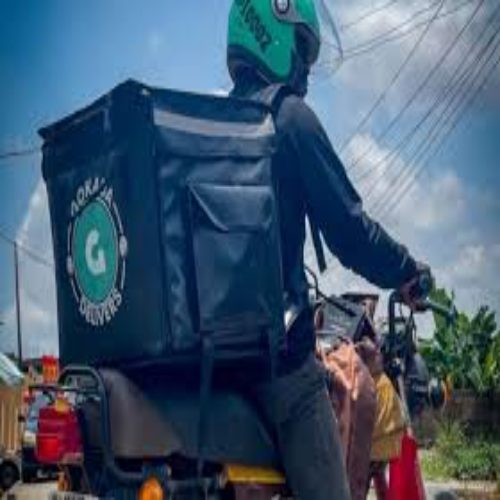
Last month, Gokada appointed Nikhil Goel as its new CEO. He has been at the helm of the Nigeria-based last-mile delivery, logistics, and transportation start-up since the tragic loss of its founder, Fahim Saleh, in July 2020.
According to Gokada, Goel has driven a tenfold increase in revenue and a hundredfold growth in delivery order volume, leading the company to profitability over the past year.
In an interview, Goel discusses the current state of the company and its future plans.
Does Gokada Intend to Expand Beyond Lagos?
Goel addressed the frequent question of whether Gokada plans to expand outside Lagos, especially following last year’s Okada ban.
“That question has come up numerous times. Even when the ban was implemented, people suggested we move operations outside Lagos. They believed the Lagos government was not supportive,” Goel said.
When the ban occurred, Gokada had nearly a thousand 200cc bikes, making it impractical to relocate them outside Lagos.
In response to market needs, the company launched a delivery business. Goel believes they have established a unique delivery service and aims to focus on enhancing and expanding it.
“When the ban was enforced, we had limited time to pivot to the delivery business. Delivery is a regulated sector with proper licensing, unlike ride-hailing,” he explained.
The company’s strategy has been to maintain focus and address challenges as they arise.
“That focus keeps Gokada thriving. Instead of diversifying too much, we concentrate on a few core services. We started with 50-100 deliveries a week in February and now handle thousands daily in Lagos.”

G-Hub, Gokada Business, and Additional Services
To minimize delivery friction and wait times, Gokada introduced G-Hub. This initiative involves partnering with underutilized venues as pickup and delivery points. They recently collaborated with Cars45 to use its showrooms, agreeing on a revenue split based on the volume of packages processed.
“Our priority is instant delivery. We want the process to be as seamless as ordering a ride on Uber or Bolt. Customers expect quick delivery, not waiting for hours,” Goel said.
Discussing the hub program’s expansion, Goel emphasized their careful selection of locations. Gokada plans to expand gradually, adhering to their focus-driven approach.
Gokada also launched a service for businesses, allowing companies to access its fleet of riders through APIs without using the Gokada app or website. Hundreds of customers are already utilizing this service.
Gokada’s delivery solutions now encompass various sectors, including food delivery, grocery delivery, parcel delivery, eCommerce fulfillment, and more.
Regarding the diverse delivery types, Goel mentioned that the goal is to enable customers to send anything, provided it is legal and fits on a bike.

Views on Competitors
In March, Estonian startup Bolt announced plans to intensify its food delivery efforts in Nigeria. Similarly, global delivery service Glovo hinted at entering the Nigerian market.
In response to these announcements, Goel said, “The market just became more competitive, which benefits customers as companies strive to improve.”
“Internally, we have never been more prepared. Food delivery is a priority for us due to high demand. While many companies can launch a website or campaign, the key is delivering a seamless customer experience.”
Goel is unfazed by the competition, drawing on his experience running a restaurant in India and working at Safeboda during Glovo’s food delivery launch in Kenya.
He emphasized that new market entrants will have to learn and adapt to the unique Nigerian market dynamics.
What Keeps Gokada Going
2020 presented significant challenges for Gokada, but the company’s dedication to its riders and customers sustained it.
“We knew that our thousands of pilots [riders] relied on us. Failing to address challenges would leave them jobless and potentially lead them astray,” Goel said.
After surviving the government ban and the pandemic, Gokada’s primary concern now is its people.
“Our focus is on continuing progress and improving the lives of our pilots. They are affected by rising fuel and essential item prices. Addressing these pain points is a priority.”
“At this moment, our goal is to keep both our customers and pilots satisfied.”


